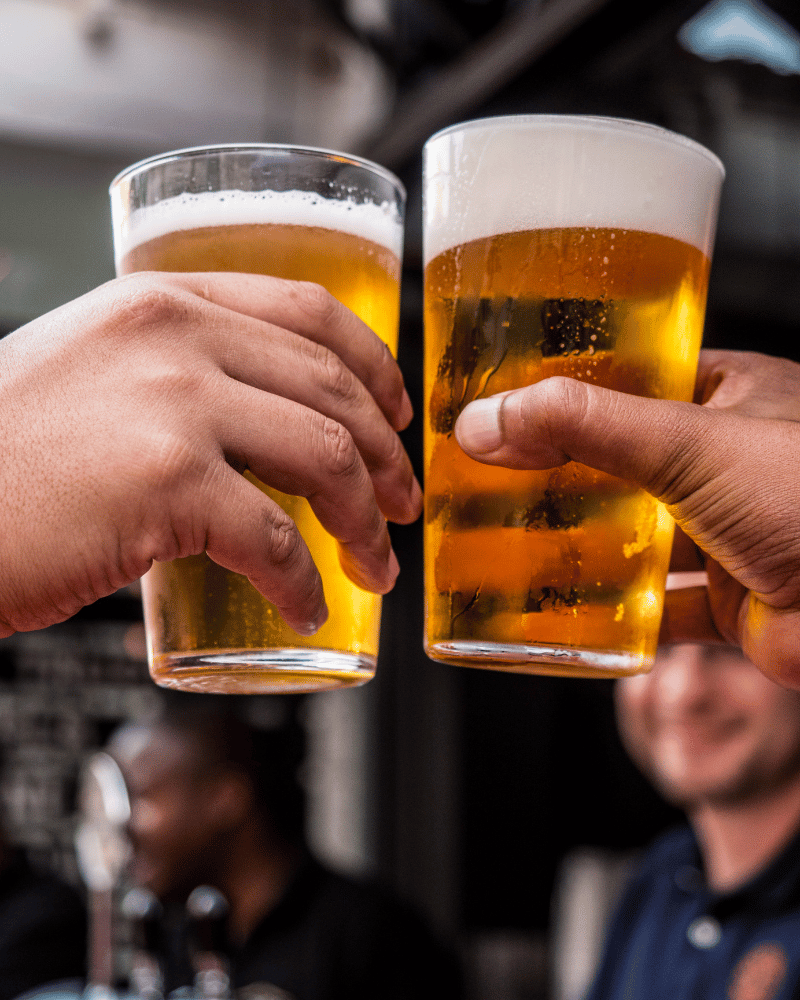Gently withdrawing from alcohol at home can be the first step towards a healthier life and help to sustainably improve your own well-being. Unlike quitting abruptly, gentle withdrawal is a slow and gentle process that is particularly suitable for people with mild to moderate addiction. Here you will find useful tips on how to best prepare for and successfully complete your gentle withdrawal.
Gentle alcohol withdrawal
Gentle alcohol withdrawal means that you do not stop drinking alcohol abruptly, but reduce it gradually. This method is intended to be gentle on the body and mind and alleviate withdrawal symptoms. A gentle withdrawal is less stressful for the body and mind, as the withdrawal takes place in small steps and the change is therefore easier to cope with. This can reduce the risk of relapses and make it easier to stick with the withdrawal in the long term. Especially if you are withdrawing alone and without medical supervision, the gentle approach is safer and more comfortable.


Preparation for alcohol withdrawal at home
Good preparation is the key to successful gentle alcohol withdrawal. The better you prepare yourself for the change, the easier it will be to get through withdrawal. Here are some important tips on how to prepare yourself optimally:
-Set clear goals: Think about why you are going through withdrawal and write down your reasons. These goals can help you stay motivated.
-Gradual reduction: Start by slowly reducing your alcohol consumption over several days or weeks. This makes it easier to prepare your body for withdrawal.
-Find supporters: Tell those close to you about your plan and ask for their support. Family and friends can be a great help if they motivate you and accompany you in challenging moments.
-Remove temptations: To better resist cravings, remove alcoholic drinks from your home and create an environment that supports you in giving up.
Supportive measures during gentle alcohol withdrawal at home
To make withdrawal easier and alleviate the typical withdrawal symptoms, there are a few measures that can support you during the process:
-Drink enough water: water helps to detoxify the body and alleviate typical withdrawal symptoms such as headaches and tiredness. A glass of water at your usual drinking times can also replace the psychological habit effect.
-Healthy, nutrient-rich diet: A balanced diet with plenty of fresh fruit and vegetables provides your body with the necessary vitamins and minerals to support the healing process and stabilize your energy levels.
-Physical exercise: Light exercise, such as walking, swimming or yoga, can increase your sense of well-being, reduce stress and release positive endorphins. Exercise also distracts you from cravings and helps you to organize your thoughts.
-Develop a sleep routine: Sleep can be affected during withdrawal. A set routine and calming rituals before bedtime, such as reading or meditation, can help you sleep better.
Withdrawal symptoms during gentle alcohol withdrawal at home
Even a gentle withdrawal from alcohol can be associated with physical and psychological symptoms. These symptoms vary in intensity, but are generally milder in slow withdrawal. Common symptoms and tips for coping with them:
-Physical symptoms: headaches, sweating or shaky hands may occur in the first few days. Drinking plenty of water, relaxing teas and exercise help to alleviate these symptoms.
-Mental symptoms: restlessness, nervousness and mood swings are also frequent companions. Meditation, deep breathing exercises and distraction through creative activities can be helpful here.
-Sleep problems: Many people report difficulty falling asleep or restless sleep. A fixed sleep routine, calming herbal teas and evening relaxation exercises can help here.
The most important thing is to listen to your body and allow yourself to take breaks when you need them.

Support through professional counseling and self-help groups for successful alcohol withdrawal at home
Even if you approach withdrawal on your own, external support is very helpful in many cases. Counseling centers, hotlines and self-help groups can be helpful companions during withdrawal and can often be reached anonymously and online. The advantages of such services are
-Professional advice: experts and counselors can give you tips on how to deal with withdrawal symptoms and develop a strategy for overcoming challenges.
-Self-help groups: Sharing with other sufferers can be motivating and relieving. It is often helpful to know that you are not alone and that other people are going through similar experiences.
-Online programs and apps: Many organizations now offer digital support so that you can receive support at any time and from home.
Relapse prevention after alcohol withdrawal: How to stay alcohol-free in the long term
After a successful withdrawal, it is important to develop strategies to prevent a relapse. Relapses are part of the process and should not be seen as a failure. You can reduce the risk of relapse with these tips:
-Restructure your daily routine: a regular daily routine can help to establish alcohol-free routines. Plan activities and times that fill you up and distract you.
-Coping with stress without alcohol: Find alternative ways to deal with stress. Hobbies such as painting, reading or sports are a good way to distract yourself and reduce stress.
-Self-care and rewards: Reward yourself for stages you have achieved and treat yourself to small, non-alcoholic pleasures. A new movie, a nice trip or a small gift to yourself can boost your motivation.
-Maintain social support: Even after withdrawal, sharing with family, friends or self-help groups can remain helpful to stay on track in the long term.



